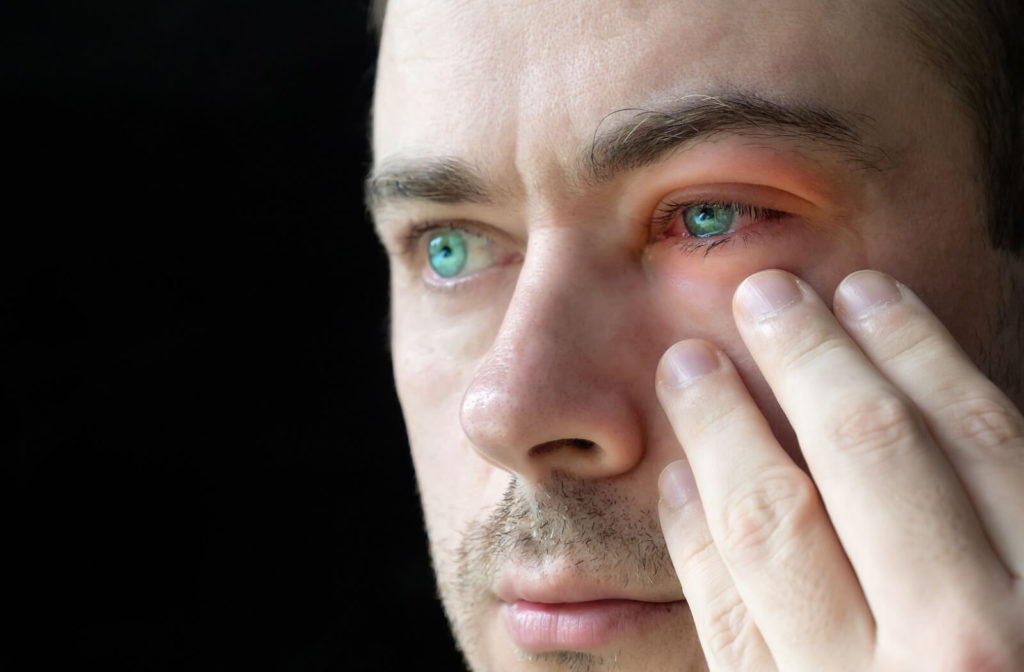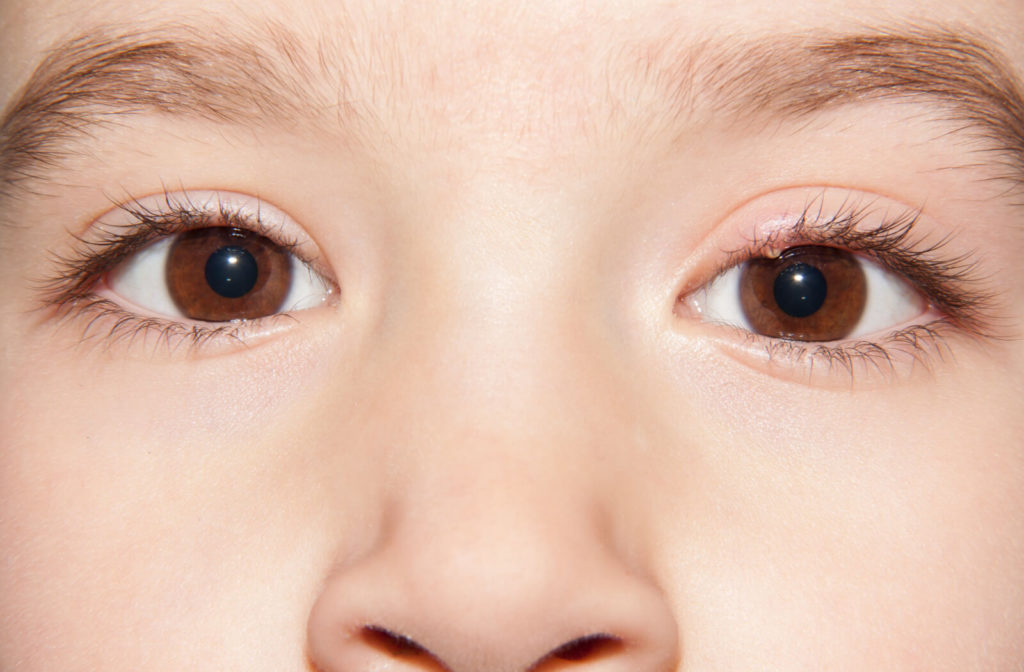Have you ever felt like your eyelids are itchy, inflamed, or irritated? If so, you might have blepharitis—a common eye condition that causes inflammation and irritation around your eyelids. While it’s treatable with the help of your optometrist, many people find themselves wondering: is blepharitis contagious?
Fortunately, the answer is no.
Blepharitis is most often caused by a buildup of bacteria on the eyelid margin or a problem with your meibomian glands—neither of which can be transmitted to another person.
What Is Blepharitis?
Blepharitis is a condition that causes inflammation of your eyelids. It typically occurs where the eyelashes grow, causing red, itchy, inflamed eyelids, eyelash loss, dry eyes, light sensitivity, and often eye infections.
Blepharitis is considered chronic, meaning that even if it’s treated or goes away on its own, it’ll likely return.
Symptoms of Blepharitis
If you have blepharitis, you may have symptoms like:
- Red and swollen eyelids
- Itchiness around the eyes
- A feeling of grittiness or burning in the eyes
- Flaky skin around the eyes
- Sensitivity to light
These symptoms can also indicate other eye conditions, so it’s important to see your optometrist to get a proper diagnosis.
What Causes Blepharitis
There are 2 primary types of blepharitis, each with its own cause:
- Anterior blepharitis causes inflammation of the glands at the eyelashes’ base. It’s often caused by excessive bacteria, usually staphylococcus.
- Posterior blepharitis causes inflammation of the glands along the waterline in your eyelids. It’s often associated with systemic diseases like acne rosacea, atopic dermatitis, and seborrheic dermatitis.
Blepharitis can also be caused by a mite called Demodex or pollutants or irritants in the air.
While the condition isn’t contagious, it shares many of the symptoms of a typical eye infection—which can be contagious. It’s important to get a proper diagnosis so you can receive appropriate treatment for whatever is causing your symptoms.

Treatments for Blepharitis
There’s no cure for blepharitis, but it can be managed with various methods, such as:
- Keeping your eyelids clean and free from any crust that may be building up.
- Using warm compresses to keep the area hydrated.
- Using specific eyelid wipes to keep the area clean.
- Using antibiotics or special medication when the condition flares up.
- Using eye drops to reduce inflammation on the surface of your eye.
- Using a medication eyelid scrub to control inflammation and gently clean the eyelid.
Most of these treatments involve keeping the eyelids clean and your eyes hydrated. If your blepharitis is more severe than usual, your optometrist may recommend in-office treatments like:
- Bruder Masks, to help maintain heat on your eyelids for 15 minutes twice daily
- InMode Radio-Frequency (RF) & Intense Pulse Light (IPL), which can help reduce inflammation, improve meibomian gland function, and reduce symptoms of dry eyes caused by blepharitis
- BlephaClean or I-Lid’n’Lash P Tea Tree Wipes, as an antiseptic cleaning agent to reduce recurrences
They’ll likely recommend some lifestyle or environmental changes alongside these treatments to help prevent blepharitis in the future.
Tips for Preventing Blepharitis
To keep blepharitis at bay, your optometrist will likely recommend:
- Following a proper eyelid hygiene routine.
- Avoiding touching or rubbing your eyes—especially when the condition flares up.
- Removing makeup before you sleep.
- Using daily warm compresses.
These small changes may be able to reduce the likelihood of your blepharitis returning.
What to Do If You Have Blepharitis
If you think you have blepharitis, don’t panic. While it can be uncomfortable, it’s not contagious and it won’t harm your vision. So schedule an appointment with us here at Discover Eyecare. Our team can perform a comprehensive eye exam and give you a proper diagnosis for your blepharitis.



